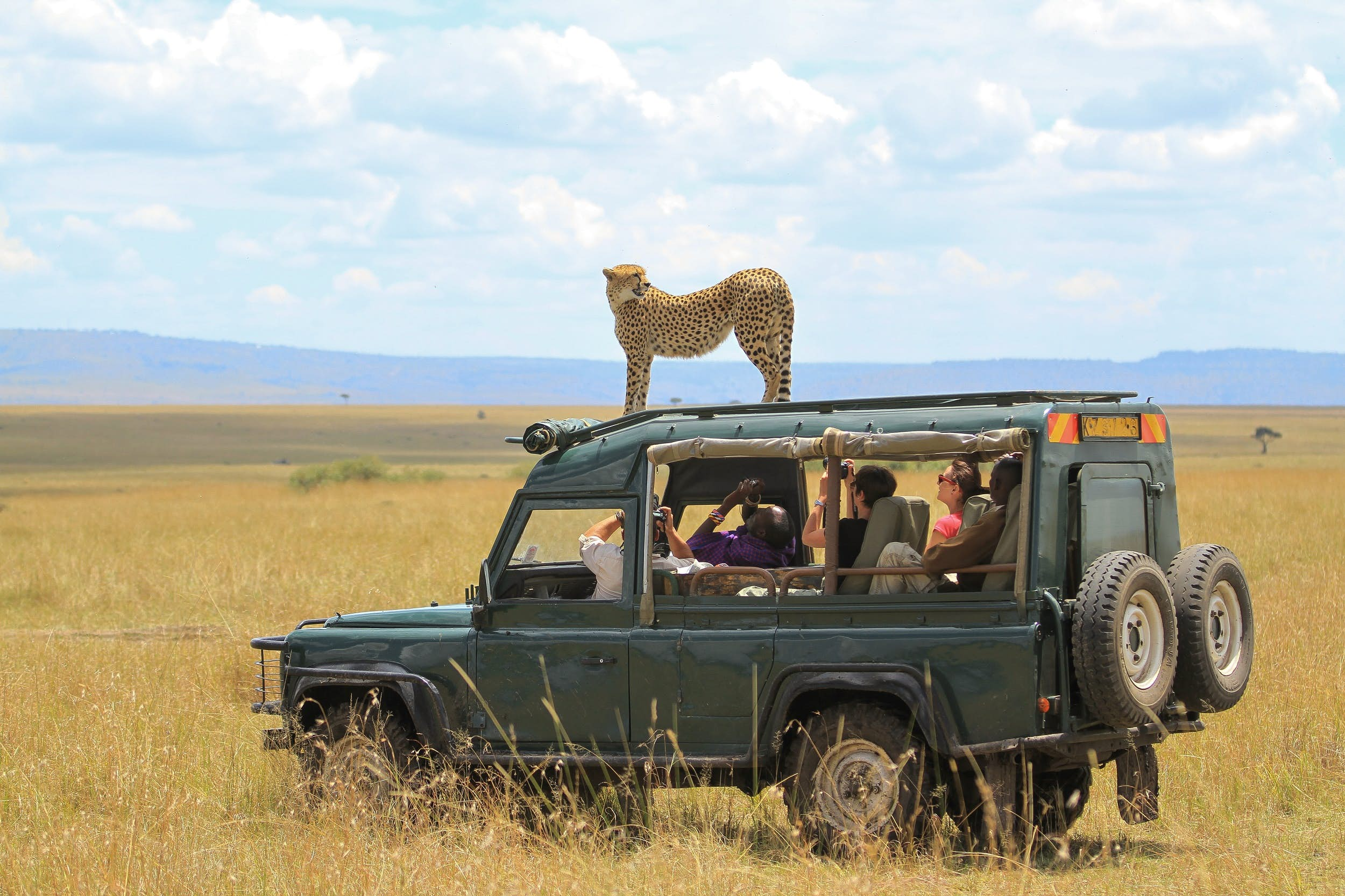If you’ve never visited the African bush before, you’re probably overflowing with questions. What will it be like? When’s the best time to go? What creatures will you see? What should you wear? Well fear not, because answers to all these questions and more await!
Is going on safari safe?
Firstly, remember that commercial safaris are led by trained and highly experienced guides. It’s their job to keep you (and the animals) safe. So as long as you follow the rules, safaris are not dangerous.
That said, never wander off from the group, or leave the safari vehicle without a trained field guide’s permission and supervision. If you’re staying at a lodge with hippos, it’s crucial not to go out at night, as this is when these not-so-gentle giants leave the water to graze. While you might be more worried about lions, hippos are actually the most dangerous animals in the bush!
If you have children with you, make sure they understand that these are wild animals, and definitely not for petting. (Yes, even the cute-looking ones.)
What is the best month to go on an African safari?
While you can go on safari any time of the year, there are months when it will be easier to spot animals.
In Botswana and South Africa, the period between June and October is considered optimal. This is the dry season, so the vegetation is less dense, and animals tend to make their way to waterholes quite often. As an added bonus, fewer mosquitoes!
Further north in Tanzania and Kenya, however, the best months to go on safari are between January and March. Because these countries are closer to the equator, they get very hot and humid – so visiting in winter when it’s cooler is a good idea.
What clothes should I bring?
You’ve probably heard people say not to wear bright colors on a game drive. However, this is forgetting one important detail – most of the animals you’ll see on a game drive, like antelope and their predators, are largely colorblind!
That doesn’t mean they don’t have good vision, though. Their ability to see in low light and spot movement is typically much better than ours. But if you want to wear that comfortable bright pink sweater on a chilly morning game drive, then go for it!
Layers are always a good idea, as the temperature can change dramatically as soon as the sun comes out or goes down. A good hat, sunblock, and comfortable shoes are a must. You’ll want long trousers and hiking shoes or boots for a walking safari, but shorts or skirts are fine for a game drive.
How much does it cost to go on safari?
One of the great things about going on safari is that you really can find an experience that suits your budget. Many of the larger game reserves cater both for international tourists and locals, so offer affordable, mid-range, and luxury packages. Generally speaking, safaris run between about $200 per night to $900 per night.
What animals can I expect to see?
While this depends to some extent on where you go, these animals are frequently observed on safari:
Antelope like impala, springbok, kudu, eland, and waterbuck
Ungulates like zebra, wildebeest, and giraffes
Elephants and hippos
Predators are generally harder to spot – after all, they don’t want their prey to see them, so tend to keep a low profile. However, in many parks they are accustomed to game drive vehicles, so spotting lions, cheetah, hyena, and wild dogs is a definite possibility. If you’re really, really lucky, you might even see the notoriously elusive leopard!
Will I have Wi-Fi?!
We get it! While escaping to nature is one thing, staying connected for work or to keep an eye on things back home is important too. Plus, how else are you going to share those amazing pics on your socials?
Many luxury lodges in the Kruger National Park and other large reserves therefore offer free Wi-Fi as part of your safari package – just be sure to ask when you make your booking.
Are there lots of spiders and snakes on an African safari?
Probably less than you expect! Snakes in particular try to avoid humans. If you’re going on a bushwalk, your guide will give you pointers on how to avoid accidentally stepping on a snoozy snake.
Spiders do occasionally find their way into chalets looking for water or shelter, but if you spot one that’s making you uncomfortable, just let reception know and they will send someone to calmly remove it and take it outdoors again.
Can you take your kids on safari?
Children often bring an infectious enthusiasm about animals with them, so are welcome on most safaris. If your kids are still very young though, they probably won’t get much out of the experience. However, you’ll find many of the good lodges offer childcare and babysitting services, so don’t let that stop you!

